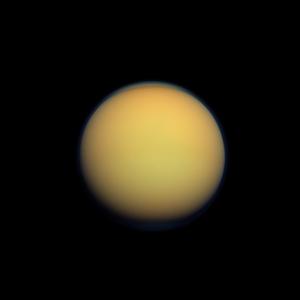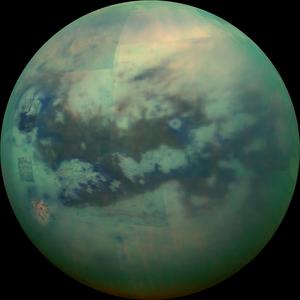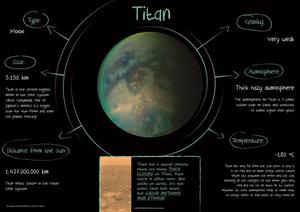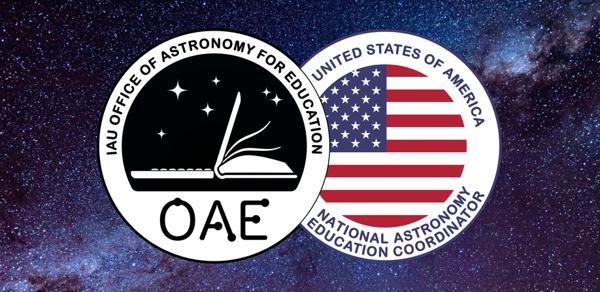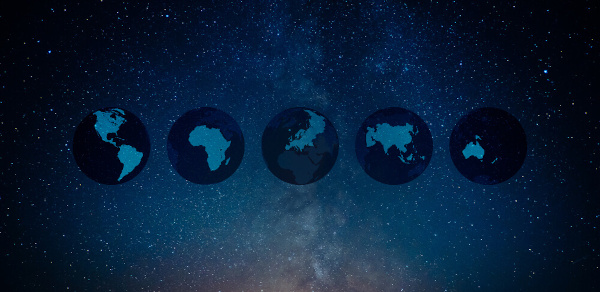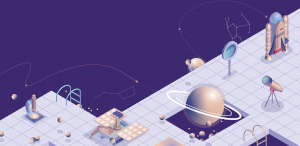Glossary term: 泰坦
Description: 土衛六(泰坦)是土星最大的衛星。它比月球和水星都大,是太陽系中第二大的衛星。除地球外,土衛六是唯一已知表面有液態大洋、海和河流的天體。不過,這些都是由被稱為碳氫化合物的化學物質構成的。土衛六被認為有一個岩石核心和一個由水構成的冰殼。人們認為冰殼下的液態水可能孕育著生命。土衛六的大氣層很厚,主要由氮氣構成,這使得它在照片上看起來非常光滑。
Related Terms:
See this term in other languages
Term and definition status: The original definition of this term in English have been approved by a research astronomer and a teacher The translation of this term and its definition is still awaiting approval
This is an automated transliteration of the simplified Chinese translation of this term
The OAE Multilingual Glossary is a project of the IAU Office of Astronomy for Education (OAE) in collaboration with the IAU Office of Astronomy Outreach (OAO). The terms and definitions were chosen, written and reviewed by a collective effort from the OAE, the OAE Centers and Nodes, the OAE National Astronomy Education Coordinators (NAECs) and other volunteers. You can find a full list of credits here. All glossary terms and their definitions are released under a Creative Commons CC BY-4.0 license and should be credited to "IAU OAE".
If you notice a factual or translation error in this glossary term or definition then please get in touch.
Related Media
土衛六自然色彩圖像
Credit: 美國宇航局/噴氣推進實驗室/空間科學研究所 credit link
License: PD Public Domain icons
具有表面特徵的土衛六
Credit: 美國宇航局 / 噴氣推進實驗室 / 亞利桑那大學 / 愛達荷大學 credit link
License: PD Public Domain icons
Related Activities
Children's Planetary Maps: Titan
astroEDU educational activity (links to astroEDU website) Description: Learn about the only other known body in the Solar System with Seas and Lakes
License: CC-BY-4.0 Creative Commons 姓名標示 4.0 國際 (CC BY 4.0) icons
Tags:
Maps
, Planetary cartography
, Spatial thinking
Age Ranges:
6-8
, 8-10
, 10-12
Education Level:
Middle School
, Primary
, Secondary
Areas of Learning:
Social Research
Costs:
Low Cost
Duration:
2 hours
Group Size:
Group
Skills:
Analysing and interpreting data
, Asking questions
, Communicating information
, Constructing explanations
, Developing and using models
, Engaging in argument from evidence
, Planning and carrying out investigations
